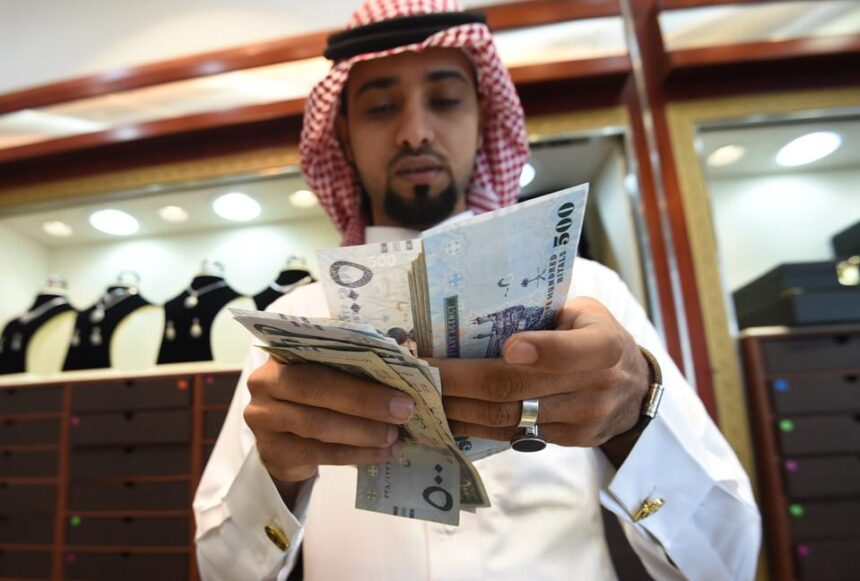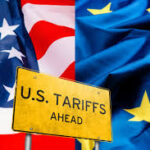The UAE stands as the only Gulf Cooperation Council (GCC) state set to achieve a balanced budget in 2025. Other GCC nations are grappling with widening deficits caused by oil production cuts and fluctuating crude prices. According to analysts, the UAE’s fiscal discipline, diversified economy, and investments in non-oil sectors enable it to navigate these challenges successfully.
The UAE’s success stems from its strategic economic planning and substantial investments in social development, infrastructure, and economic diversification. These efforts have positioned the country as a regional leader and a global financial hub, ensuring long-term economic stability. Despite the regional fiscal struggles, the UAE continues to maintain investor confidence with its forward-thinking approach.
GCC Faces Fiscal Deficits Due to Oil Cuts
A recent report from Kamco Invest estimates that the GCC’s aggregate budgeted expenditure for 2025 will be $545.3 billion, slightly down from $554.9 billion in 2024. Meanwhile, the region’s projected revenues are expected to decrease by 3.1%, falling to $488.4 billion. The decline in revenue is primarily attributed to oil production cuts by GCC OPEC members. This results in a forecasted regional fiscal deficit of $56.9 billion, up from $50.8 billion in 2024.
Read More: Wizz Air Abu Dhabi Celebrates 21st Anniversary with Exciting Raffle and Discounts
Oil price assumptions in the region remain cautious. Most GCC nations, including Saudi Arabia, Bahrain, and the UAE, assume a conservative crude price of $60 per barrel for budgeting purposes. However, these countries have not disclosed their specific price assumptions for the year.
UAE’s Balanced 2025 Federal Budget
The UAE’s federal budget for 2025, approved at Dh71.5 billion ($19.5 billion) for both expenditure and revenue, reflects an 11.6% increase in spending and an 8.8% rise in revenue compared to 2024. Key allocations include Dh27.9 billion (39%) for social development and pensions, Dh25.6 billion (36%) for government affairs, and Dh12.6 billion (18%) for other federal expenses. This budget underscores the UAE’s commitment to enhancing quality of life through investments in social welfare and infrastructure.
Saudi Arabia dominates the GCC in terms of revenue and expenditure, with 65.5% and 63.6%, respectively. However, the UAE’s robust project market is a significant growth driver. According to Meed Projects, the GCC’s total upcoming contracts amount to $1.54 trillion as of April 2025, with the UAE contributing $312.3 billion, second only to Saudi Arabia. These projects include key infrastructure expansions in Dubai, such as logistics and renewable energy, aligning with the UAE’s Vision 2030 strategy to reduce oil dependency.
Global Oil Market Fluctuations Impact GCC Economies
Global oil market fluctuations add complexity to the fiscal outlook of the GCC. Crude oil prices surged above $80 per barrel in early 2025, but fell below $60 per barrel by April due to US tariffs on China and other global trade tensions. According to Bloomberg, this drop in oil prices presents challenges for the region’s economies that are heavily reliant on oil revenues.
The International Energy Agency (IEA) revised its 2025 oil demand growth forecast downward by 0.3 million barrels per day to 0.73 mb/d, citing trade tensions and a weaker global economic outlook. Despite these uncertainties, the UAE’s diversified economy helps cushion the impact of oil price fluctuations. The non-oil sectors, including tourism, finance, and technology, accounted for 73% of the UAE’s GDP in 2024, according to the UAE Central Bank.
Also Read: Tariff-Free Zones Surge Amid Trump’s Trade War Moves
Dubai’s Financial Hub Attracts Global Capital
Dubai’s status as a global financial hub and its investments in innovation, such as the Dubai Future District, continue to attract global capital. These factors provide a buffer against oil revenue volatility, ensuring that the UAE remains financially resilient. The UAE’s ability to achieve a balanced budget, while other GCC nations face deficits, demonstrates its fiscal discipline and strategic foresight.
The GCC’s budgetary priorities for 2025 focus on healthcare, education, and infrastructure development. However, the UAE’s balanced fiscal approach, which includes investments in social welfare and economic diversification, sets it apart from its regional counterparts. Economists believe the UAE’s resilience offers a model for the region, with Dubai poised to lead the GCC’s economic transformation in 2025 and beyond.
UAE Emerges as a Model of Fiscal Stability
By strategically managing its resources and diversifying its economy, the UAE has emerged as a beacon of fiscal stability in a region facing significant financial challenges. The country’s fiscal discipline and commitment to growth ensure its continued success in the years ahead, even amid global uncertainties.
Follow 10X Times for more business news.






